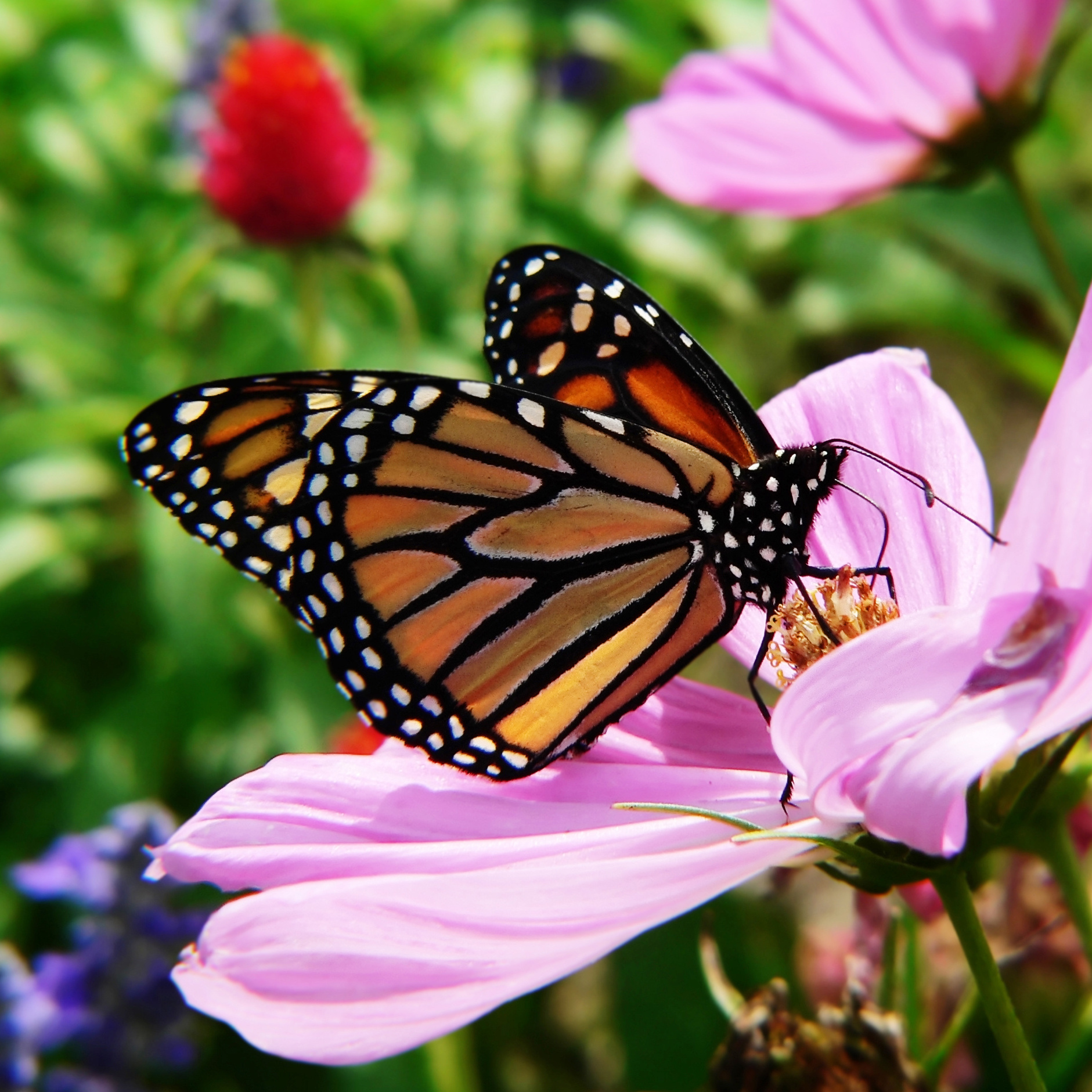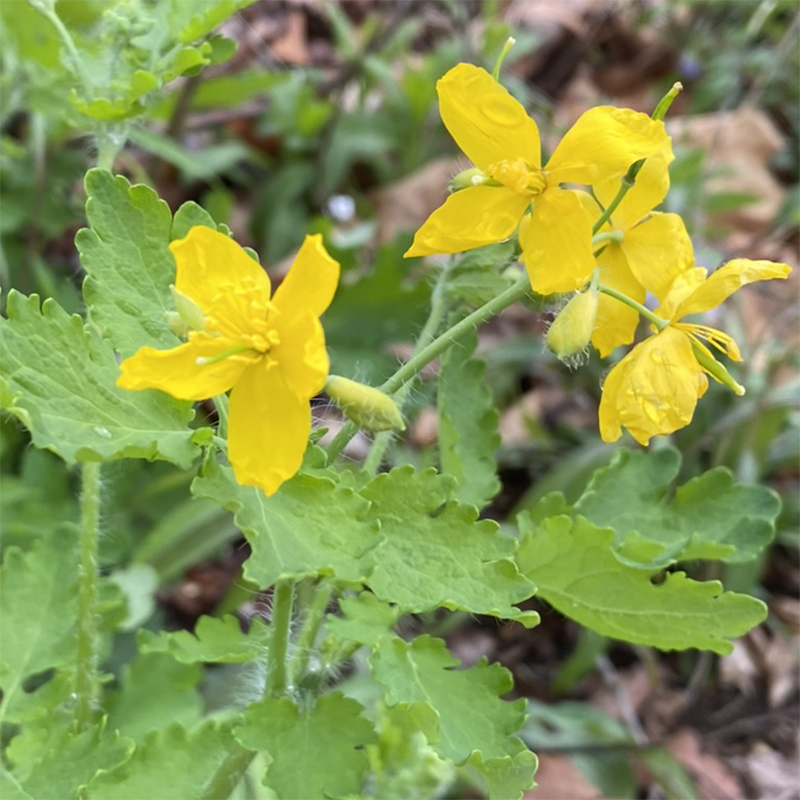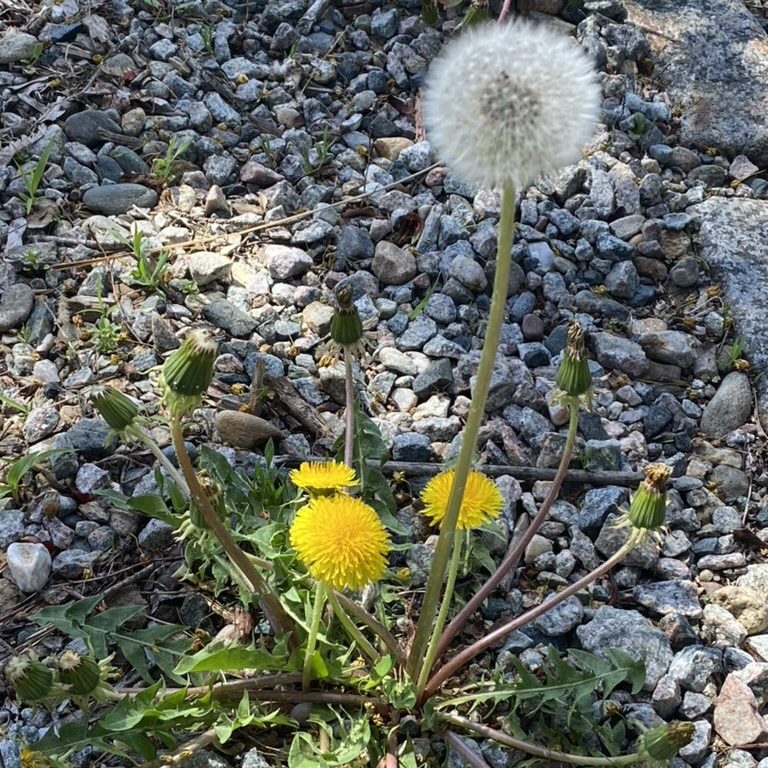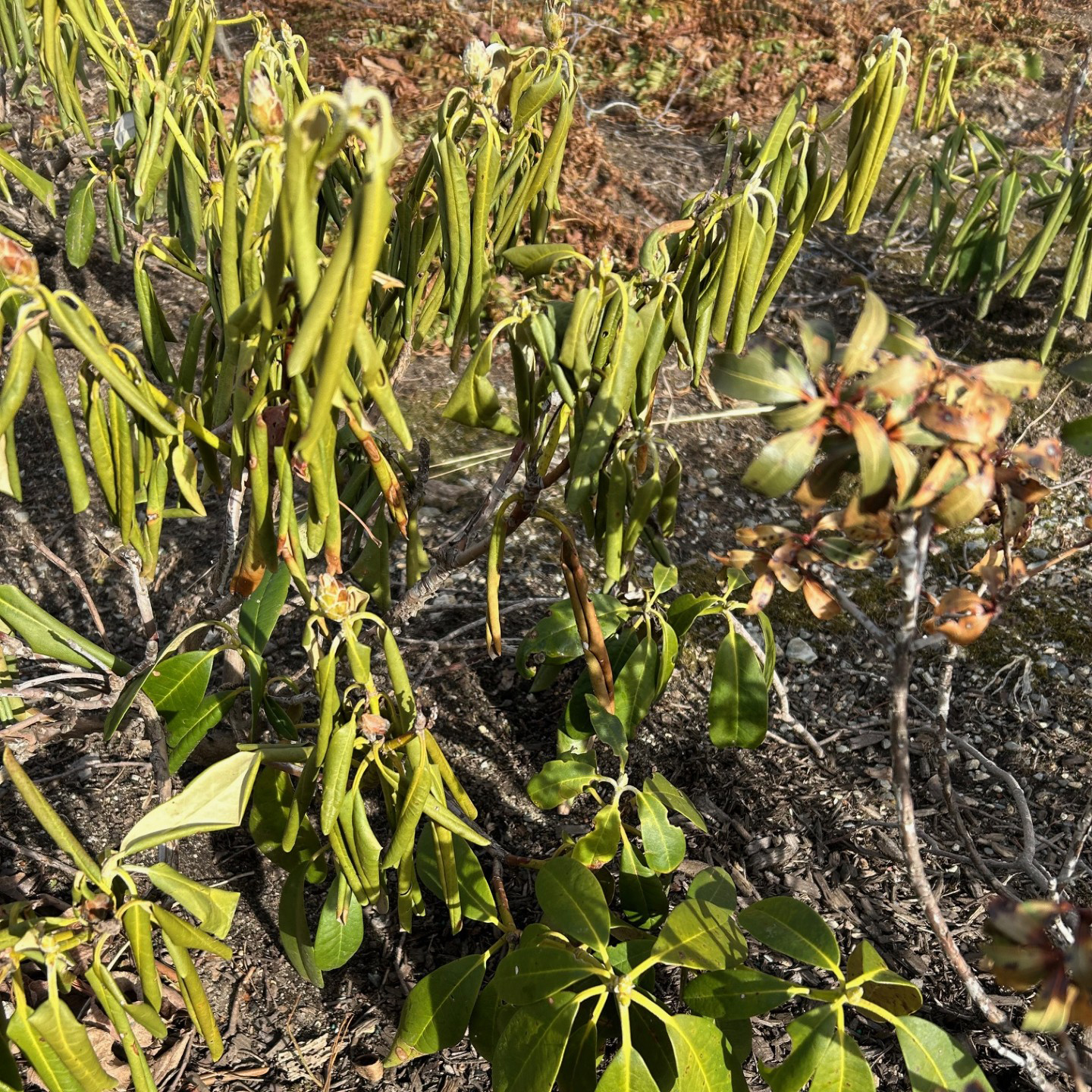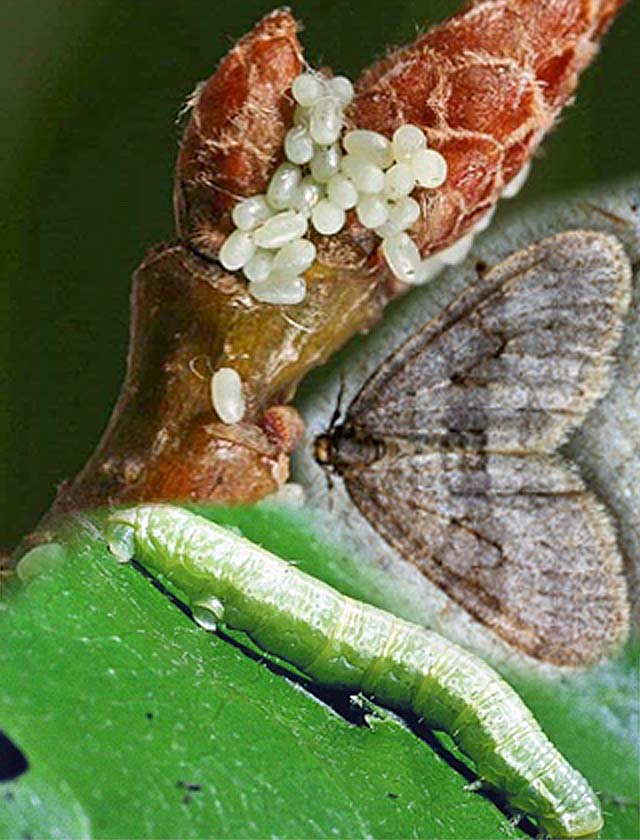
Dirk Coburn, Horticultural Specialist, Weston Nurseries
Winter Moth caterpillar is now found in much of southeastern New England, and is expected to expand its reach within the Northeast. The young larvae are tiny and they tunnel into buds where they feed as early as early to mid April. Later, the larger larvae feed on open leaves. They can defoliate even a large tree quickly, a major stress to the plant even when it can refoliate itself.
Plants susceptible to Winter Moth caterpillar damage include: oaks, maples, basswood, elms, ash, mountain ash, deciduous azaleas, most fruit trees, and blueberry.
Weston Nurseries carries products that can help you limit damage to your landscape from Winter Moth.
Bonide’s Thuricide product contains Bacillus thuringiensis (B.t. Kurstaki), a bacterium specific to caterpillars of butterflies and moths that works well on young Winter Moth larvae up to ¼” in length.
Captain Jack’s Deadbug Brew, also from Bonide, is based on Spinosad, another biorational compound effective on Winter Moth larvae. Captain Jack’s and Thuricide should be applied when the larvae are young and actively feeding.
As larvae grow larger, to ½” and beyond, you may need a pyrethrin-based contact insecticide like Bonide’s Eight. Be sure to avoid spraying Captain Jack’s or Eight directly on open flowers visited by bees.


